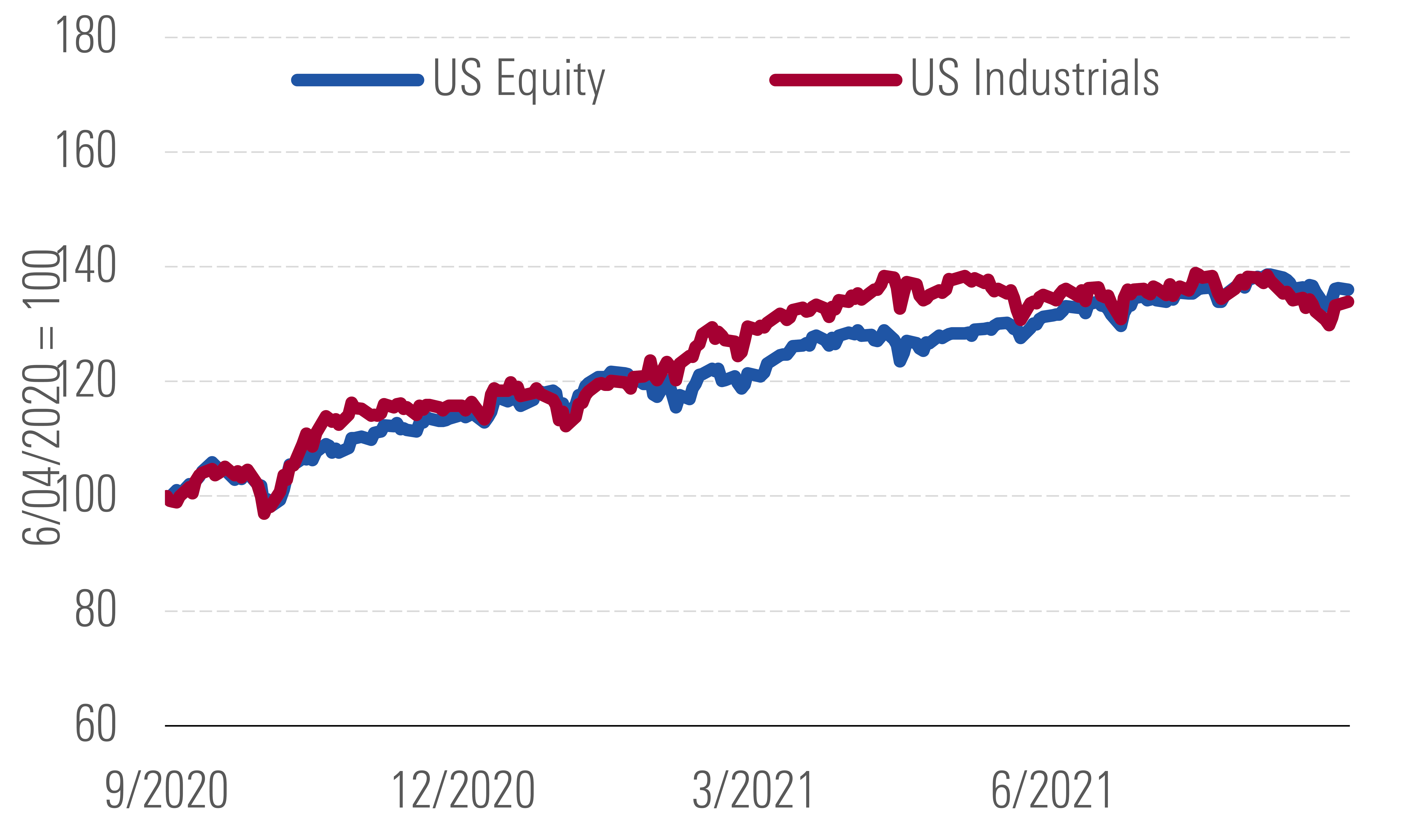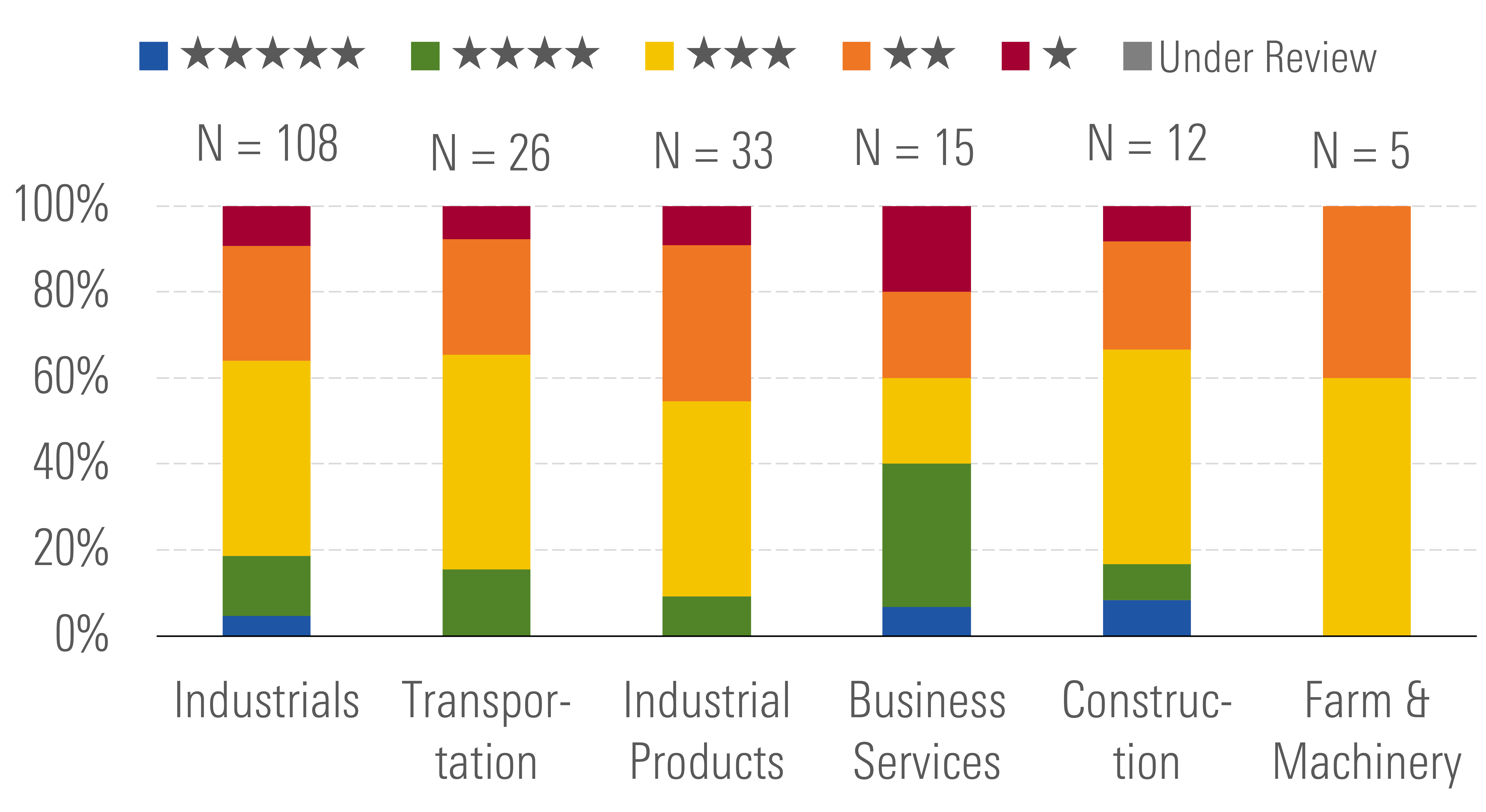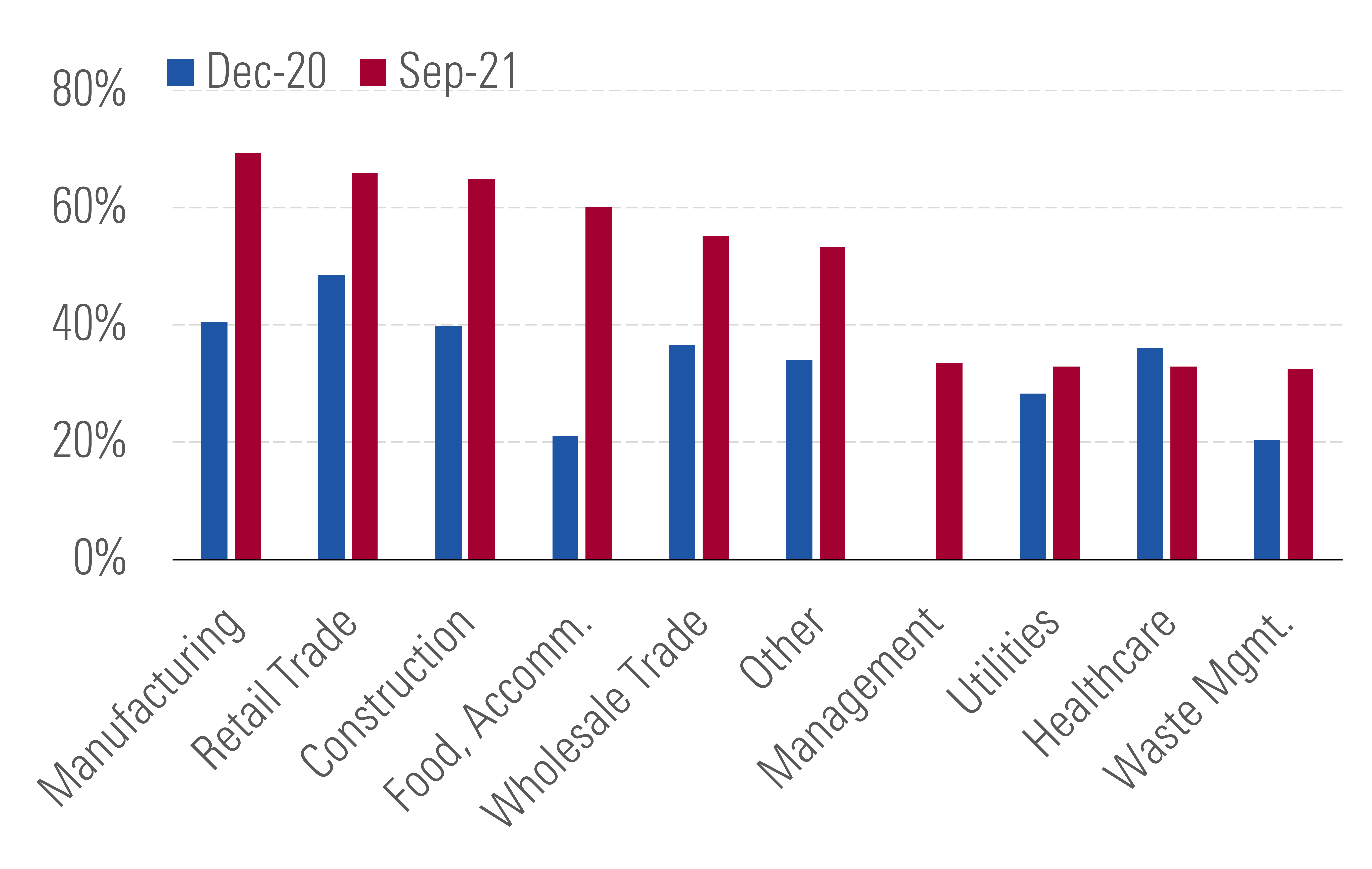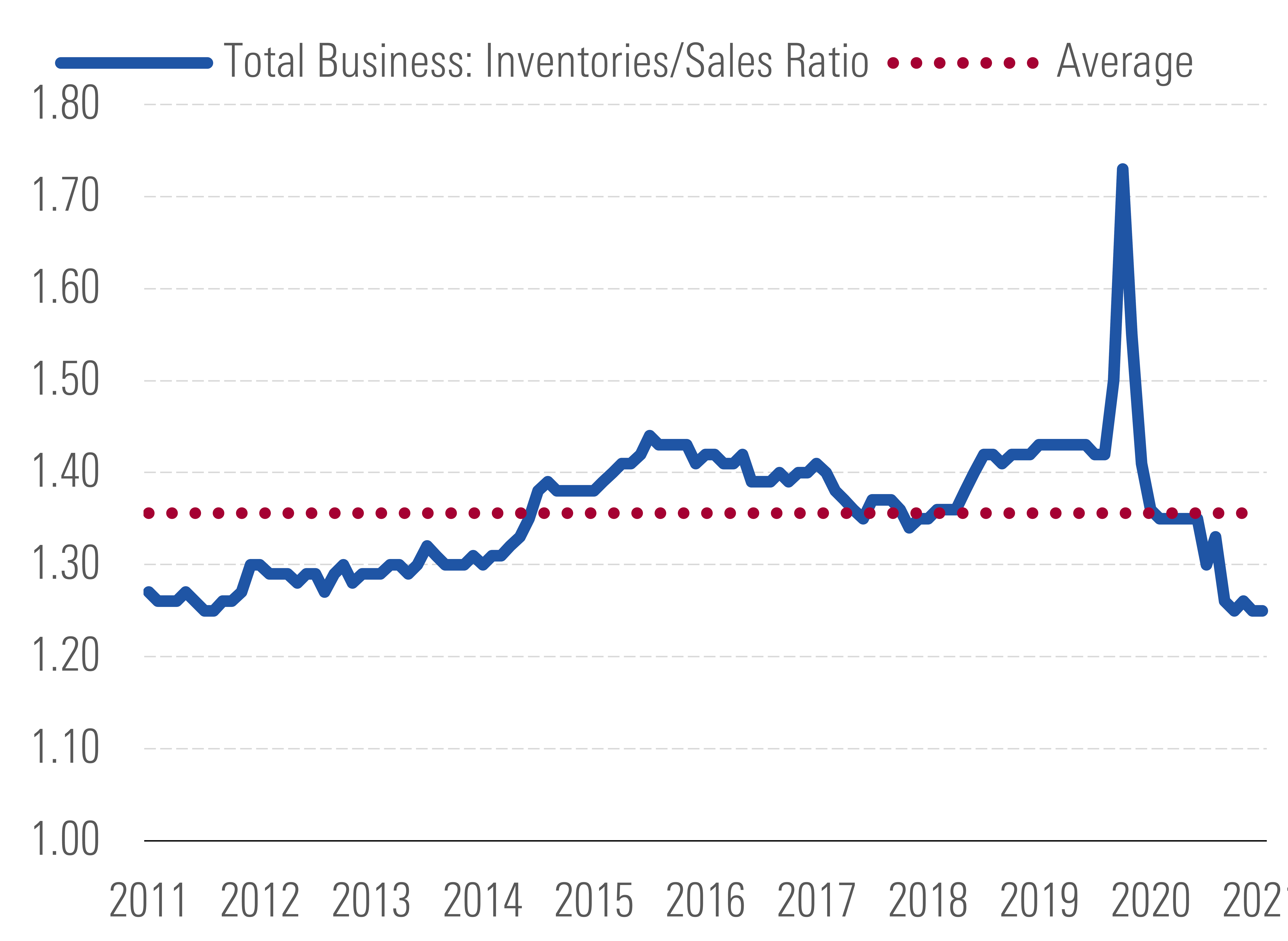Amid Supply Chain and Delta Variant Concerns, Opportunities Emerge in Industrials
Patient investors can capitalize on market turmoil.
Much of the industrials sector has been rattled by supply chain disruptions and rising costs—two issues that have become more problematic in recent months. CEOs have tried to counter these headwinds by repeatedly raising prices and identifying alternative suppliers, but it has seemed like a losing battle, as many companies have been unable to increase prices fast enough, and shortages of raw materials and labor have contributed to lower manufacturing throughput and shrinking inventories.
Exhibit 1: Industrials Have Underperformed U.S. Equities

Source: Morningstar
A growing chorus of companies, such as Sherwin-Williams SHW and 3M MMM, have warned of revenue and profit shortfalls ahead of third-quarter earnings. Even so, despite these warnings, we think investors may be unpleasantly surprised by second-half 2021 earnings results, as these issues will likely persist. To make matters worse, pandemic uncertainty remains, and we believe some investors fear the proliferation of the delta and future COVID-19 variants could thwart the recovery of some industries, such as airlines.
Exhibit 2: Sector Valuations Are Still Rich, but More Opportunities Have Emerged

Source: Morningstar
We think these concerns are weighing on investors' minds and have contributed to the Morningstar US Industrials Index underperforming the broader market.
However, in our view, these issues will eventually pass, and we think long-term investors can capitalize on the market's angst. While we think valuations across the industrials sector still look rich, more investment opportunities have emerged.
Exhibit 3: More Businesses Are Reporting Supply Chain Bottlenecks

Source: Morningstar
For example, U.S. airlines looked fairly valued to us through the second quarter of 2021, but both Delta Air Lines DAL and Southwest Airlines LUV now look attractively priced after recent underperformance. We view Delta and Southwest as the two highest-quality airlines, and we still expect them to return to 2019 levels of capacity within the next two years. We expect Southwest to normalize sooner (2022) than Delta (2023) because of the former's greater mix of leisure travel.
The construction industry has been the best-performing industry within the industrials sectors, driven by strong performance from heating, ventilation, and air-conditioning leaders Johnson Controls International JCI and Carrier Global CARR. Engineering and construction firms, such as SNC-Lavalin Group SNCAF, Aecom ACM, KBR KBR, and Jacobs Engineering Group J have outperformed, as well. We believe these firms would benefit from a U.S. infrastructure spending plan.
Exhibit 4: Supply Chain Issues Have Adversely Affected Inventories and Sales

Source: Morningstar
Top Picks
Delta Air Lines DAL Star Rating: ★★★ Economic Moat Rating: None Fair Value Estimate: $52.50 Fair Value Uncertainty: Very High
We think Delta is the highest-quality legacy carrier because it has been able to attract high-yielding business travelers through its product segmentation and credit card partnerships, primarily with American Express. We’re confident that Delta can continue expanding this higher-margin business after the pandemic. Domestic leisure travel demand has recovered considerably with the reopened U.S. economy, but business travel and international travel remain muted. Still, we think Delta can return to 2019 levels of capacity by 2023.
Paccar PCAR Star Rating: ★★★★ Economic Moat Rating: Narrow Fair Value Estimate: $98 Fair Value Uncertainty: Medium
We believe Paccar will continue to be one of the leading truck manufacturers, even with the eventual shift to autonomous and electric vehicles. The company has long been known for its premium truck brands, Kenworth, Peterbilt, and DAF. Paccar’s trucks are some of the strongest-performing, most durable, and fuel-efficient on the market. We expect Paccar to excel in the near term, given strong tailwinds in the trucking industry. Longer term, we think Paccar will be one of the leading players in the trucking industry, which we expect to be largely zero-emission.
General Electric GE Star Rating: ★★★★ Economic Moat Rating: Narrow Fair Value Estimate: $131 Fair Value Uncertainty: High
GE is undergoing a lean transformation under CEO Larry Culp that the market has yet to fully appreciate. We expect healthcare will continue to expand its operating margins through additional digital mix and cost productivity initiatives and grow its top line with organic investments and bolt-on acquisitions in areas like oncology. Aviation is a leader in its narrow-body engine duopoly and as such is well positioned in the broader commercial aero recovery. Over 60% of its 37,000 installed engines have yet to see a second shop visit. Given aviation’s high fixed-cost structure, a high degree of operating leverage should buoy its incremental margins.


/cloudfront-us-east-1.images.arcpublishing.com/morningstar/WC6XJYN7KNGWJIOWVJWDVLDZPY.png)
/cloudfront-us-east-1.images.arcpublishing.com/morningstar/HHSXAQ5U2RBI5FNOQTRU44ENHM.jpg)
/cloudfront-us-east-1.images.arcpublishing.com/morningstar/737HCNGRFLOAN3I7RKGB7VPEKQ.png)